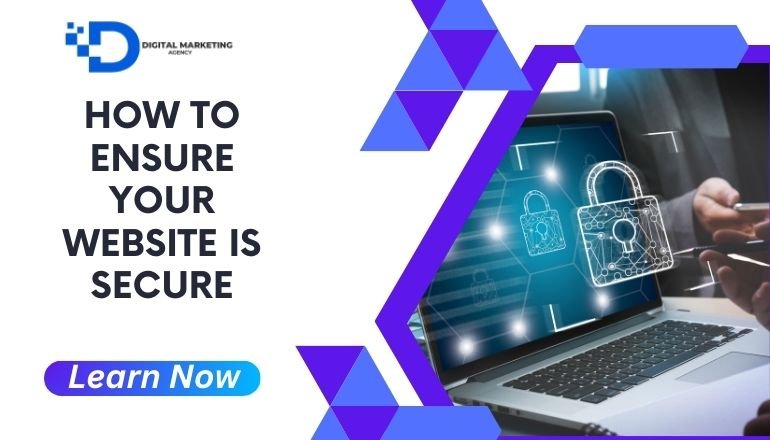In today’s digital landscape, security is a top priority for businesses striving to maintain their online presence. As digital marketing strategies such as SEO, PPC, and social media advertising continue to drive business growth, the need to ensure your website is secure from cyber threats becomes more critical than ever. A secure website not only protects sensitive customer data but also improves brand credibility, search engine ranking, and overall user experience. At Best Digital Marketing Agency, we emphasize the importance of website security in protecting your online reputation and ensuring a seamless digital marketing strategy.
Why Website Security Matters?
Ensure Your Website is Secure is a fundamental step toward building trust and achieving long-term success in the digital space. Google and other search engines give preference to secure websites (those with HTTPS), which can boost your rankings.
Furthermore, a secure site is essential for maintaining customer loyalty and preventing cyberattacks, which can lead to data breaches, financial loss, and brand damage. Incorporating security measures into your digital marketing strategy is a vital step in building long-term success and maximizing ROI.
Key Components of Website Security
Website security is a multifaceted approach that includes several key components to ensure protection:
- SSL Certificates: Secure Socket Layer (SSL) certificates encrypt the connection between your website and users, ensuring that sensitive information like passwords and credit card numbers are protected.
- Strong Password Policies: Use complex, unique passwords for all accounts associated with your website, including content management systems (CMS), hosting accounts, and email addresses.
- Regular Software Updates: Keep your website’s software, plugins, and themes up to date to avoid vulnerabilities. Hackers often exploit outdated systems.
- Firewalls: A firewall acts as a barrier between your website and malicious traffic, blocking potential threats before they can reach your site.
- Backup Systems: Regular backups help restore your site in case of a security breach, minimizing downtime and loss of data.
Best Practices for Website Security
To ensure your website remains secure, follow these best practices:
- Use HTTPS: Secure your website with HTTPS, which not only protects user data but also improves your site’s SEO and search engine rankings.
- Implement Multi-Factor Authentication: Protect your login credentials with multi-factor authentication (MFA) for an added layer of security.
- Monitor Your Website Regularly: Set up monitoring systems to detect any unusual activity or vulnerabilities, and act quickly to address any issues.
- Limit User Access: Restrict access to sensitive areas of your website, allowing only authorized users to make changes or view confidential data.
- Secure Your Hosting Provider: Choose a hosting provider with strong security protocols, including automated backups, firewalls, and 24/7 monitoring.
Common Mistakes to Avoid in Website Security
When ensuring website security, avoid these common mistakes:
- Neglecting Regular Updates: Failing to update software and plugins regularly can leave your site vulnerable to attacks. Make sure all systems are updated to the latest versions.
- Weak Passwords: Using easy-to-guess passwords or reusing passwords across multiple accounts increases the risk of a breach. Always use strong, unique passwords for each account.
- Ignoring Backups: Without regular backups, recovering from a cyberattack or data breach can be incredibly difficult. Ensure your site is backed up frequently.
- Overlooking User Permissions: Allowing unnecessary access to site administrators or users can put your website at risk. Limit user permissions to prevent unauthorized changes.
How Website Security Fits into a Comprehensive Digital Marketing Strategy
Website security is essential for a comprehensive digital marketing strategy. A secure site improves user trust, which can lead to better engagement, more conversions, and higher ROI on your marketing campaigns. Furthermore, secure websites are favored by search engines, which can lead to higher rankings and more organic traffic. In the long run, a well-secured website enhances the effectiveness of your SEO efforts, PPC ads, and social media campaigns, creating a solid foundation for your online marketing strategy.
Conclusion: Key Takeaways
Ensuring your website is secure is an essential aspect of building a trustworthy, high-performance online presence. By implementing strong security measures such as SSL certificates, regular updates, and strong password policies, you can protect your business from cyber threats and build customer confidence.
Avoid common mistakes like neglecting updates and using weak passwords, and integrate website security into your broader digital marketing strategy to boost SEO, brand credibility, and user engagement.













